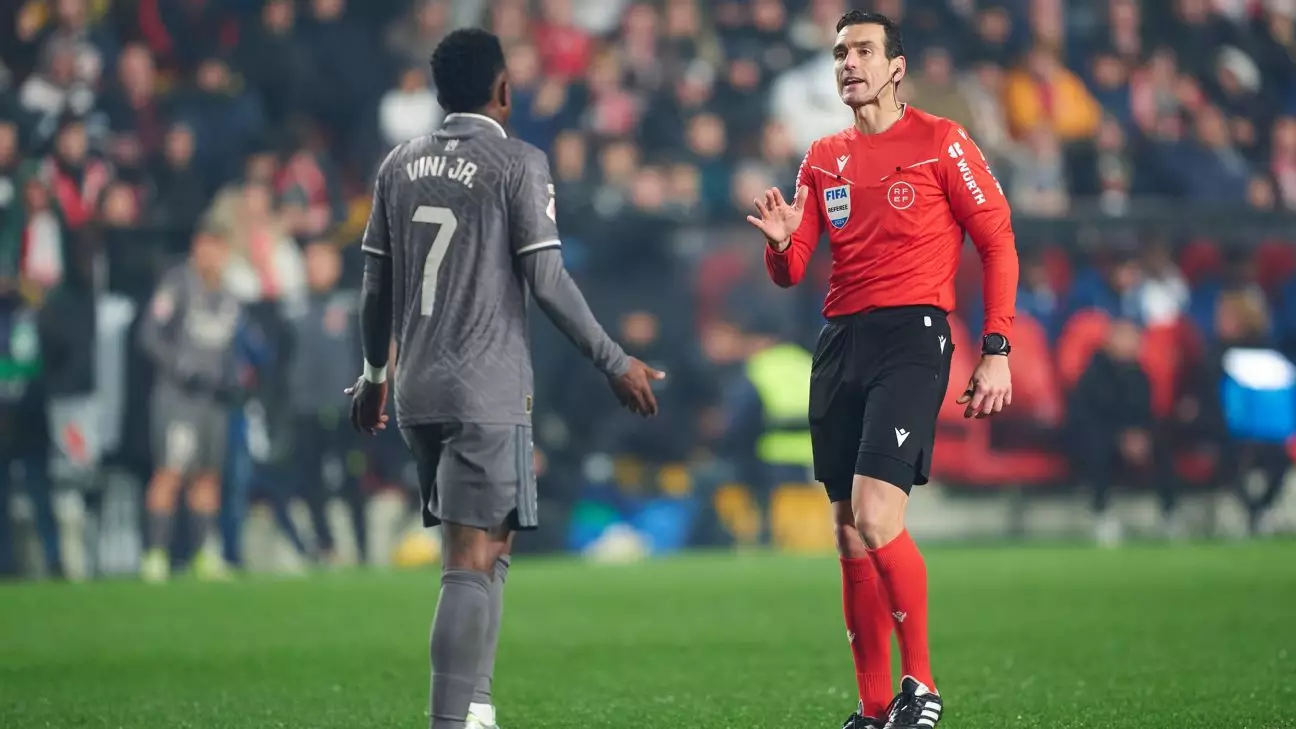The recent LaLiga match between Real Madrid and Rayo Vallecano has sparked substantial controversy, deepening existing tensions within Spanish football. Vinícius Júnior, the Brazilian winger for Real Madrid, found himself at the center of attention not just for his on-field contributions but for a gesture made towards Rayo Vallecano fans during the heated encounter. The match, which ended in a thrilling 3-3 draw, epitomized the emotional rollercoaster that often defines football; however, it was Vinícius’s response to the crowd that has since overshadowed the game itself.
During the second half, after a tumultuous game where Madrid initially fell behind 2-0 before taking the lead at 3-2, Vinícius, a substitute, was targeted with chants from the opposing fans. Videos circulating on social media captured the moment where he seemingly made a provocative gesture implying that Rayo Vallecano could be relegated. This reaction not only escalated the situation but also drew attention from LaLiga officials, who indicated that they would report both the derogatory chants targeting Vinícius and his retort to the Spanish football federation’s disciplinary committee.
An Unfolding Disciplinary Saga
LaLiga President Javier Tebas addressed the situation promptly, indicating that while he was aware of the provocation involved, he did not see evidence of racist chanting. His emphasis on interpersonal conflict rather than overt racial abuse sheds light on the complexity of fan behavior and player reactions in modern football. The federation’s ongoing scrutiny over fan conduct and player reactions reflects a broader issue within the sport—where emotions run high, and spectators can sometimes blur the lines of sportsmanship. Tebas confirmed that they would await the final report from the match officials before taking decisive actions.
On the other side of the spectrum, Rayo Vallecano’s president, Raúl Martín Presa, criticized Vinícius’s actions, labeling them as “not correct.” His comments underscore the sensitivity around club identities and the notion of relegation, particularly for a smaller club like Rayo, where every season in the top tier is deemed a triumph for survival. This reaction highlights the divided perspectives surrounding football culture where rivalries are fierce, and any perceived slight can intensify the competitive atmosphere.
Wider Implications for Spanish Football
This incident not only spotlights the heated interactions between players and fans but also raises questions about the responsibilities of all parties involved in maintaining decorum. With Spain’s football scene battling ongoing scrutiny over fan violence and discriminatory behavior, this situation reiterates the need for introspection. Both fans and players must navigate their emotional journeys within the confines of the sport wisely.
The aftermath of Vinícius Júnior’s handshake with controversy is more than a singular event; it reflects the multifaceted, often contentious relationships that define football. As LaLiga moves to address this incident formally, it remains crucial for all stakeholders to engage in constructive dialogue aimed at promoting respect, integrity, and understanding within the beautiful game. The emotional landscape of football should be celebrated, but always with an awareness of its potential for discord and the responsibility that comes with it.

